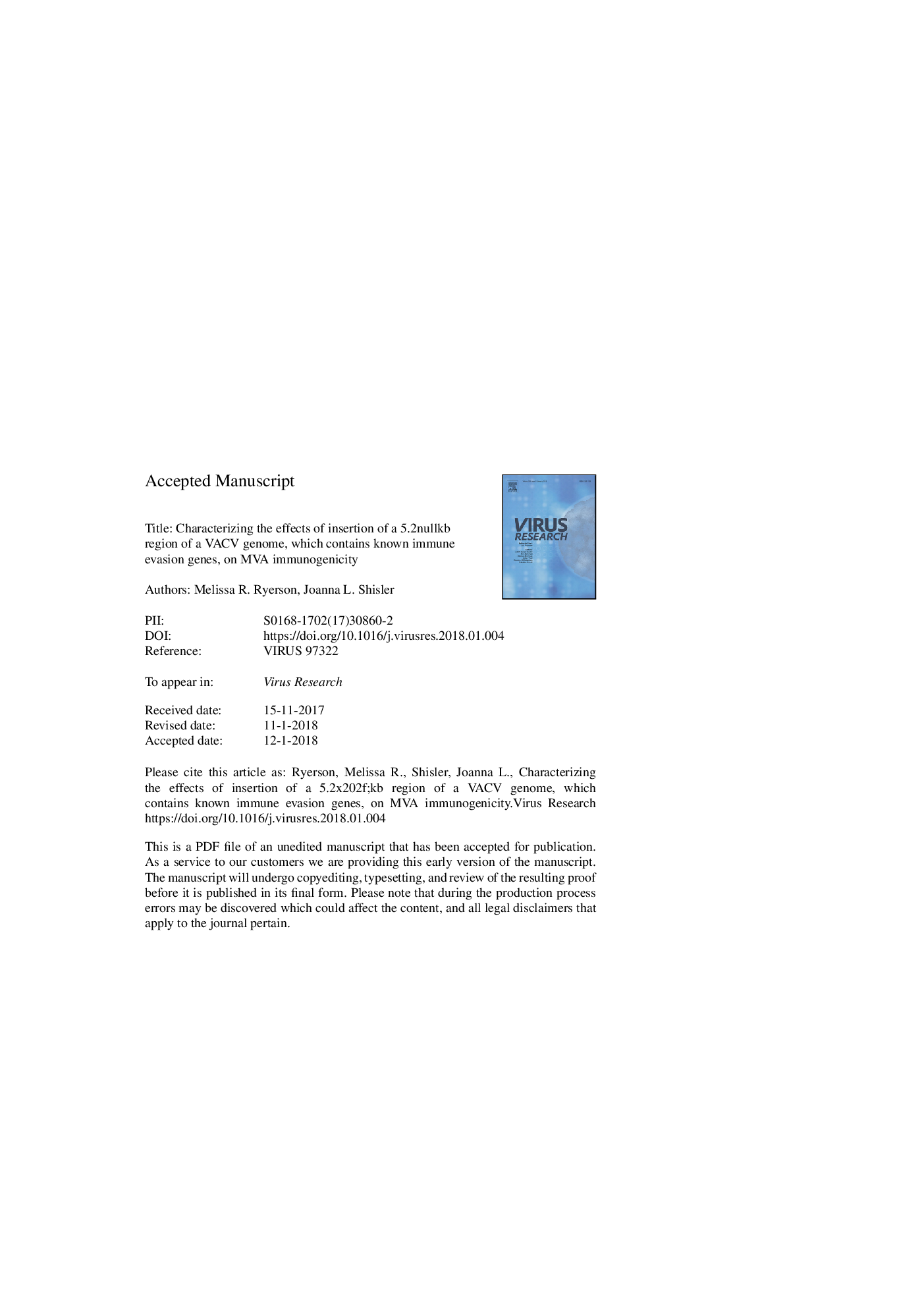| Article ID | Journal | Published Year | Pages | File Type |
|---|---|---|---|---|
| 8751931 | Virus Research | 2018 | 46 Pages |
Abstract
Modified Vaccinia virus Ankara (MVA) is an attenuated Vaccinia virus (VACV) that is a popular vaccine vector candidate against many different pathogens. Its replication-restricted nature makes it a safe vaccine. However, higher doses or multiple boosts of MVA are necessary to elicit an immune response similar to wild-type VACV. Multiple strategies have been used to create modified MVA viruses that remain safe, but have increased immunogenicity. For example, one common strategy is to delete MVA immunomodulatory proteins in hopes of increasing the host immune response. Here, we take the opposite approach and examine, for the first time, how re-introduction of a 5.2â¯kb region of VACV DNA (that codes for multiple immunomodulatory proteins) into MVA alters viral immunogenicity. Since antigen presenting cells (APCs) are critical connectors between the innate and adaptive immune system, we examined the effect of MVA/5.2â¯kb infection in these cells in vitro. MVA/5.2â¯kb infection decreased virus-induced apoptosis and virus-induced NF-κB activation. MVA.5.2â¯kb infection decreased TNF production. However, MVA/5.2â¯kb infection did not alter APC maturation or IL-6 and IL-8 production in vitro. We further explored MVA/5.2â¯kb immunogenicity in vivo. VACV-specific CD8+ T cells were decreased after in vivo infection with MVA/5.2â¯kb versus MVA, suggesting that the MVA/5.2â¯kb construct is less immunogenic than MVA. These results demonstrate the limitations of in vitro studies for predicting the effects of genetic manipulation of MVA on immunogenicity. Although MVA/5.2â¯kb did not enhance MVA's immunogenicity, this study examined an unexplored strategy for optimizing MVA, and the insight gained from these results can help direct how to modify MVA in the future.
Related Topics
Life Sciences
Immunology and Microbiology
Virology
Authors
Melissa R. Ryerson, Joanna L. Shisler,
